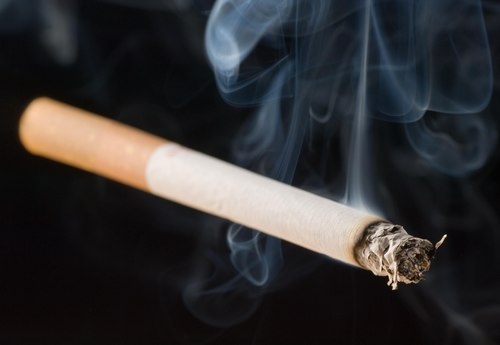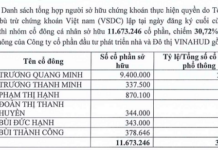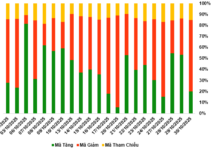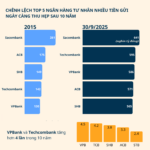The draft Law on Special Consumption Tax amendments proposes to maintain the tax rate on cigarettes at 75% and introduce an additional absolute tax with a gradual increase from 2026-2030, with two options.
Option 1: From 2026 to 2030, an additional VND 2,000 absolute tax will be imposed annually per pack of cigarettes. Option 2: In 2026, an additional absolute tax of VND 5,000 will be imposed per pack of cigarettes, with a further increase of VND 1,000 annually from 2027 to 2030.
Ms. Tran Thi Tuyet from the Department of Policy Management, Supervision, and Evaluation of Taxes, Fees, and Charges, Ministry of Finance, stated: “Comparing the impacts of the two options, option 2 is more advantageous as it will reduce the smoking rate among men in 2026 to 39.7%, while option 1 will only reduce it to 42%…”

Cigarette prices in Vietnam are becoming more affordable relative to income, leading to an increase in cigarette purchases. Meanwhile, according to the World Health Organization in Vietnam, tobacco products caused 40,000 deaths in 2006, along with healthcare costs related to tobacco-related illnesses amounting to USD 1 billion. Currently, with the purchase of 700,000 packs of cigarettes in 2023, it is estimated that tobacco is responsible for more than 80,000 deaths annually.
Given this reality, Ms. Thu from the Campaign for Tobacco-Free Kids organization proposed: “For cigarettes, we boldly suggest a third option. By 2030, we propose an additional tax of VND 15,000 per pack of cigarettes. Although adding VND 15,000 in tax per pack may seem significant now, by 2030, due to inflation and the rising consumer price index, it will no longer be as substantial.”
The Ministry of Finance has also proposed, for the first time, to impose a special consumption tax on sugary drinks (excluding milk and fruit juices…) in the draft Law on Special Consumption Tax amendments. Additionally, two options for increasing the tax rate on alcohol and beer were presented. For alcohol with an alcohol content of 20 degrees and above, two options were proposed. Option 1 suggests increasing the tax rate from the current 65% to 70%, 75%, 80%, 85%, and 90% annually from 2026-2030.
Option 2 proposes increasing the tax rate from the current 65% to 80%, 85%, 90%, 95%, and 100% annually from 2026-2030. For alcohol with an alcohol content of less than 20 degrees, Option 1 suggests increasing the tax rate from the current 35% to 40%, 45%, 50%, 55%, and 60% annually from 2026-2030. Option 2 proposes increasing the tax rate from the current 35% to 50%, 55%, 60%, 65%, and 70% annually from 2026-2030.
For beer, Option 1 suggests increasing the tax rate from the current 65% to 70%, 75%, 80%, 85%, and 90% annually from 2026-2030. Option 2 proposes increasing the tax rate from the current 65% to 80%, 85%, 90%, 95%, and 100% annually from 2026-2030.
Craft Beer Shutdown Costs Quang Nam Province $20 Million in Annual Revenue
The closure of the Heineken plant in Quang Nam province will result in a significant loss of revenue for the region, according to local authorities. The province stands to lose an estimated 500 billion VND ($21.5 million) annually due to the plant’s shutdown. This development underscores the economic impact that large-scale manufacturing facilities can have on their surrounding areas, and highlights the importance of sustainable industrial policies and diversification strategies to mitigate such risks.
Heineken’s Latest Move: Investing Over $550 Million in Vietnam, Home to its Largest Brewery in Southeast Asia
Heineken is making waves in Vietnam with a significant investment of over 12,600 billion VND. Following the closure of its Quang Nam brewery, the company is directing its funds towards a province boasting Vietnam’s largest deep-water port. This strategic move underscores Heineken’s commitment to expanding its footprint in the country and leveraging the advantages offered by this well-equipped maritime gateway.









































